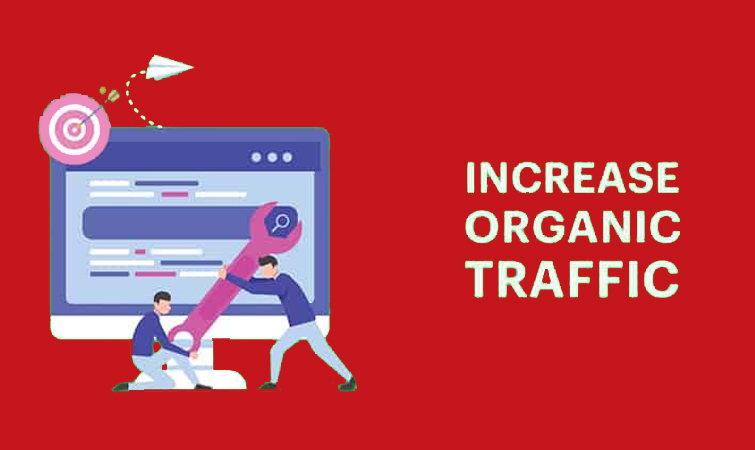Organic traffic refers to users who visit your website from the organic listing in the search results other than the paid ads displayed at the top of the SERP.
If you’re looking for a quick fix to drive traffic to your website it’s wrong. To see results, you must put in the effort and be patient. Choosing organic traffic boosting strategies, on the other hand, maybe the best investment you can make for your eCommerce business.
Best SEO services in Chennai drive traffic to your website through search engine results pages (SERPS) using search engine optimization (SEO) or pay-per-click (PPC) ads that appear before organic results (such as Google Ads).
The results of paid advertising are almost instant, but you must pay every time a user clicks on your ads. This is a shortcut to your goals that may only provide you with temporary customers and a high bounce rate. Building organic website traffic is free, but it takes time.
Continue reading to learn how to get organic traffic to your website.
Organic Traffic: Why Does It Matter for Your Company?
Organic traffic refers to visitors who arrive at your website after searching on a search engine such as Google, Bing, or Yahoo. Organic traffic takes time to generate results for SEO, but it is the best type of traffic for your website.
This is why.
Organic traffic is targeted, which means that users who click through to your website have a specific intent and convert at a higher rate than a random visitor from a paid search. Users are more likely to trust websites that rank organically, so organic traffic can boost your credibility.
How to Increase Organic Traffic to Website
Any website owner or marketer’s dream is to rank high in search results. If you rank on the first page, you will undoubtedly receive a large amount of organic traffic. If you don’t rank on the first page, your dream will remain just that — a dream. Here are eight helpful hints for increasing organic traffic to your website:
- Use long-tail keywords.
- Consider influencer marketing.
- Leverage on-page SEO.
- Find and remove non-performing content.
- Become a guest blogger.
- Create video content on YouTube.
- Promote your content on social media.
- Answer questions on Google’s People Also Ask.
1. Use Long-Tail Keywords
If you want to learn how to drive traffic to your website, writing high-quality content is only half the battle. If you focus on long-tail keywords in your keyword research, you can significantly increase organic traffic. Long-tail keywords are three or four words long, such as “best WordPress security plugins” or “restaurants in Lagos.” Long-tail keywords can help you create compelling titles for your blog posts. When looking for keyword ideas, consider using tools like Ahrefs’ free keyword generator.
2. Consider Influencer Marketing
Influencers typically have a large number of followers who interact with them regularly. Having them mention and recommend your brand can be a game-changer, resulting in massive organic traffic to your website. They can also create unique, new content for your company. Using an influencer as a brand ambassador can help you gain new potential customers, especially if you run a small business.
3. Leverage On-Page SEO
When learning how to drive traffic to your website, you must optimize your web pages for search engines in addition to creating and publishing great content. Optimizing your images, HTML tags, and headlines are all part of on-page SEO. Make sure your images compliment your content and that your meta description and title tags are optimized. Your header tags make your posts easier to read and more enjoyable to read, which can affect your rankings. Overall, your on-page SEO will increase website traffic and improve your website’s visibility in search engine results pages (SERPs).
4. Find and Remove Non-Performing Content
Non-performing content is content on a website that does not fulfill its original purpose. This can lead to major bottlenecks and jeopardize your chances of ranking high in the SERPs. This is because search engines encounter a snag in the crawling process and abandon your website before reaching important pages. Removing non-performing pages allows important content to rank higher in search results pages, allowing you to earn more organic traffic.
5. Become a Guest Blogger
When it comes to guest blogging, it is a two-way street. You can either become a guest blogger for other websites or invite people in your niche to blog on yours. Your guest post on a high-authority website can significantly increase traffic to your website and help boost brand awareness. The website’s owner will usually encourage you to share the link on your website. This can result in referral traffic and backlinks to your website.
6. Create Video Content on YouTube
Your content strategy should not be limited to creating excellent content for your website; you can also convert it into other formats, such as audio or video. YouTube videos, for example, can help attract and engage new subscribers. Uploading videos is an online marketing strategy that allows your customers to see a product or service demonstration. It also assists in answering questions about your brand. Video SEO significantly boost sales and drive organic search traffic to your website.
7. Promote Your Content on Social Media
Sharing content on social media platforms is an excellent method for content marketing. Participate in Twitter discussions using relevant hashtags. Answer questions and respond to comments on your Facebook page to engage with visitors. You can also distribute your content through relevant, high-traffic communities such as Reddit, Slack, LinkedIn, Quora, and Facebook groups.
Before you promote your content, establish trust and cultivate a relationship with the community (and make sure the group allows it). Anything else could come across as spammy. Make an effort to interact with your followers on various social media platforms to establish rapport and long-term trust with them. They’ll be more likely to share your content with their contacts, increasing traffic and brand awareness.
8. Answer Questions on Google’s People Also Ask
Instead of creating generic content about a topic, delve deeper and use Google Search to find questions people are asking. The vast majority of those who ask these questions are business owners seeking specific solutions. You can generate organic traffic by creating content for a specific audience. As a result, if you’re a blogger, use Google’s People Also Ask to find questions to answer and blog posts to generate. You will drive organic site traffic if you create content based on actual questions that users have asked.
Finally, how can you get organic traffic to your website in 2022?
This guide does not cover every method for getting organic traffic to your website, but the tips we discussed will assist you in developing a successful organic traffic strategy. From guest posting to video creation to social media marketing, you may have to put in a lot of effort before you see any results.
It won’t happen as quickly as you’d like for new website owners, but consistency and quality will eventually generate organic traffic. Choosing a reputable web host is an important step in increasing traffic to your website. We take care of what matters most to your online business with Havro Fully Managed WordPress hosting. Begin your journey to success with our hosting solutions today.

